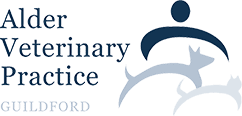When your senior dog is having incontinence issues, it goes without saying but it’s not their fault. It’s important to avoid telling them off for unexpected accidents.
This could inadvertently cause anxiety and confusion, which has the potential to worsen the issue. Below, we outline what actions can be taken if your senior dog begins to experience incontinence.
Key information for incontinence in senior dogs
While incontinence can affect senior dogs of all ages and either gender, it's significantly more prevalent in females. As female dogs grow older, their ability to manage the bladder neck can weaken, leading to potential urine leaks when the bladder's exit isn't entirely sealed.
This condition is referred to as "sphincter mechanism incontinence" and is estimated to account for approximately 80% of incontinence instances. Your senior pet might be a bit forgetful which includes remembering their house training skills. This could result in wet patches where they rest.
Incontinence can also be caused by fluctuating hormone levels, spinal and neurological complications, infections, diseases and intense stress and anxiety.
If you are worried about your dog please get in touch with your local Alder Vets in Guildford to book an appointment for a check-up.
Identifying signs of incontinence in senior dogs
Moist patches on their bedding are one of the many indicators to watch for. Any of the following symptoms could imply your dog is beginning to have issues:
- Wet legs – particularly noticeable in breeds with longer hair
- A continuous urine odour, either on your dog or surrounding their sleeping area
- Skin burns from sustained contact with urine
- An escalated inclination to groom the hindquarters
Incontinence symptoms may intermittently appear and disappear before transitioning into a persistent issue. If a secondary medical condition affects the urinary tract, the problem could get worse. However, keep in mind that incontinent dogs don't experience discomfort during urination, so don't anticipate them showing any signs of pain. Additionally, despite the incontinence, dogs will continue their usual urination routine during walks and when wondering around the garden.
Noticing any of these signs with your dog? Get in touch with Alder Vets in location today!
Medical treatment in Guildford for dogs with incontinence
Certain medical treatments can provide relief for dogs experiencing incontinence. The encouraging part is that these interventions yield total success in many cases. If you're worried that your older dog is showing signs of incontinence, please contact your local Alder Vet in Guildford.
We'll conduct a full health check, and possibly a urine sample. This process assists us in determining if any underlying conditions, such as a urinary tract infection, are exacerbating the situation. After we've excluded infections, kidney disease, diabetes and other conditions promoting excessive water intake, we'll be able to look at a plan of action for your pet. It's crucial to focus on the correct underlying cause when treating any dog for incontinence.
Dogs facing hormonal imbalances will require a distinct treatment approach compared to dogs grappling with infections or other illnesses. It's therefore essential to reach out to us as soon as you notice the problem. If there's no underlying health issue and the incontinence isn't severe, we might opt for addressing the issue with medication or hormone supplementation.
Surgery procedures in Guildford for canine incontinence
In some instances, surgical methods may be the only viable treatment. There might be a need for multiple different treatments to fully address the issue, but most procedures focus on reinforcing the muscles at the bladder neck.
Surgical options may include methods to fix or alter the position of the urethra surgically or administering collagen injections into the bladder neck. Often these procedures will require referral to a veterinary specialist.
Additional ways to assist your incontinent dog
Therapy might be a prolonged process, and there's no absolute assurance that the issue will be entirely resolved. As a result, many pet owners view incontinence as a recurring issue they'll have to manage intermittently.
Various products on the market are designed specifically to facilitate life for incontinent dogs and their owners. For instance, absorbent bedding, which is more sanitary, easier to clean and helps in keeping urine away from your dog's skin, reducing their discomfort. Incontinence pads for dogs are also available. Implementing certain behavioural changes can also be beneficial.
Ensure that you wash and dry your dog's hind legs every morning to eliminate all traces of urine and prevent discomfort. Also, provide your dog with ample opportunities to empty their bladder – frequent outdoor excursions are advisable.
Don’t limit their water intake!
But remember, it's imperative never to attempt to manage your dog's incontinence by limiting their water intake! Unless there's a concurrent medical condition, it's highly unlikely that excessive drinking is the cause of your dog's incontinence. Adequate hydration is essential for your pet and depriving them of their water supply can lead to dehydration and an array of severe health complications, potentially causing severe illness.
For further information about managing your elderly dog's incontinence, please don't hesitate to reach out to your local Alder Vets in Guildford!







We are open 6 days a week in Guildford
Find us